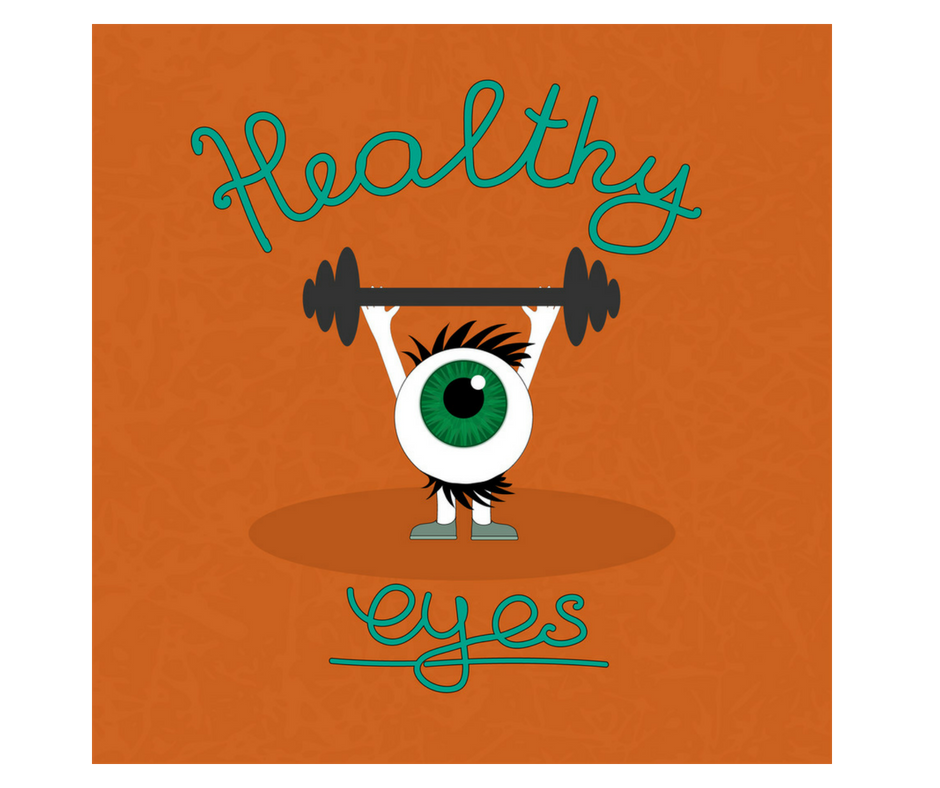How to Keep Healthy Eyes
September 13, 2018

Keeping ourselves healthy and active as we age involves a proactive lifestyle. Eating a healthy diet and taking simple common sense precautions may improve your muscles, joints, brain and even your eyes.
Note: This article is provided for your interest. It does not represent medical advice, nor should it be a substitute for the advice given to you by your own doctor. The material included in this article is not necessarily supported by scientific evidence. This article does not necessarily represent the medical views or opinions of the owners or doctors of this website. Discuss any changes in your diet with your doctor before proceeding.
Healthy Diet
Eating a healthy diet includes following a healthy diet. It’s the first step to improving, or maintaining, good health.
A healthy diet involves eating a combination of vitamins, minerals and antioxidants that may promote healthy eyes, such as:
- Vitamins A, C and E
- LuteinZeaxanthin
- Omega-3 Fatty Acids
- Zinc oxide
- Copper oxide
Dietary Sources of Vitamins
The following is a list of food sources containing various supplements and vitamins.
Sources of vitamin A:
· Sweet potatoes
· Carrots
· Butternut squash
· Cantaloupe
· Red and yellow bell peppers
Sources of vitamin C:
· All citrus fruits
· Mango
· Strawberries
· Bell peppers
· Broccoli
Sources of vitamin E:
· Nuts such as almonds, peanuts, and hazelnuts
· Seeds such as sunflower seeds
· Avocado
· Vegetable oils such as sunflower, safflower, corn, and soybean
Sources of lutein and zeaxanthin:
· Kale
· Spinach
· Egg yolks
· Corn
· Peas
· Pumpkin
· Asparagus
Sources of Omega-3 fatty acids:
· Soybeans
· Salmon
· Mackerel
· Sardines
· Tuna
· Chia Seeds and Flaxseed
Sources of zinc and copper:
· Beef, pork, and chicken
· Beans and legumes such as black beans and lentils
· Cooked oysters
· Pumpkin, squash, and sunflower seeds
Sunglasses Protect Eyes
Ultraviolet rays from the sun can cause various problems with the eyes, such as: cataracts, pingueculae and pterygiae (growths on the conjunctive and cornea) and perhaps macular degeneration. Sunglasses with UV protection may protect your eyes from developing these complications.
The best sunglasses will block 100% of UV rays. Your eye doctor can help you determine if your sunglasses are blocking enough UV light.
Healthy Weight and Lifestyle
Keeping a healthy diet and weight can reduce your risk of developing diabetes. Diabetic retinopathy is one of the leading causes of blindness. Use eye protection when playing sports or when working to reduce the chances of eye work related or sports related eye injuries.
Cigarette smoking increases the risk of developing macular degeneration, cataracts and possibly optic nerve damage. There are innumerable benefits to quitting in addition to keeping your eyes healthy.
Eye Strain and Healthy Habits
Eye strain can develop from prolonged reading, device use, gaming, etc. Take a break every 20 minutes or so to prevent eye fatigue. Look away from your device, relax and blink to moisten your eyes. When we stare, we blink less often...increasing the sensation of fatigue.
Contact lens wearers need to practice good hygiene to avoid corneal infections. Washing your hands before handling your contacts is a great start to avoiding eye infections from contact lenses. Make sure to disinfect your lenses as recommended.
Make sure to have routine eye examinations...and not just when you have problems.
If you would like to make an appointment with Drs. Whitten or Rose, you may CALL US or USE OUR CONTACT FORM.



